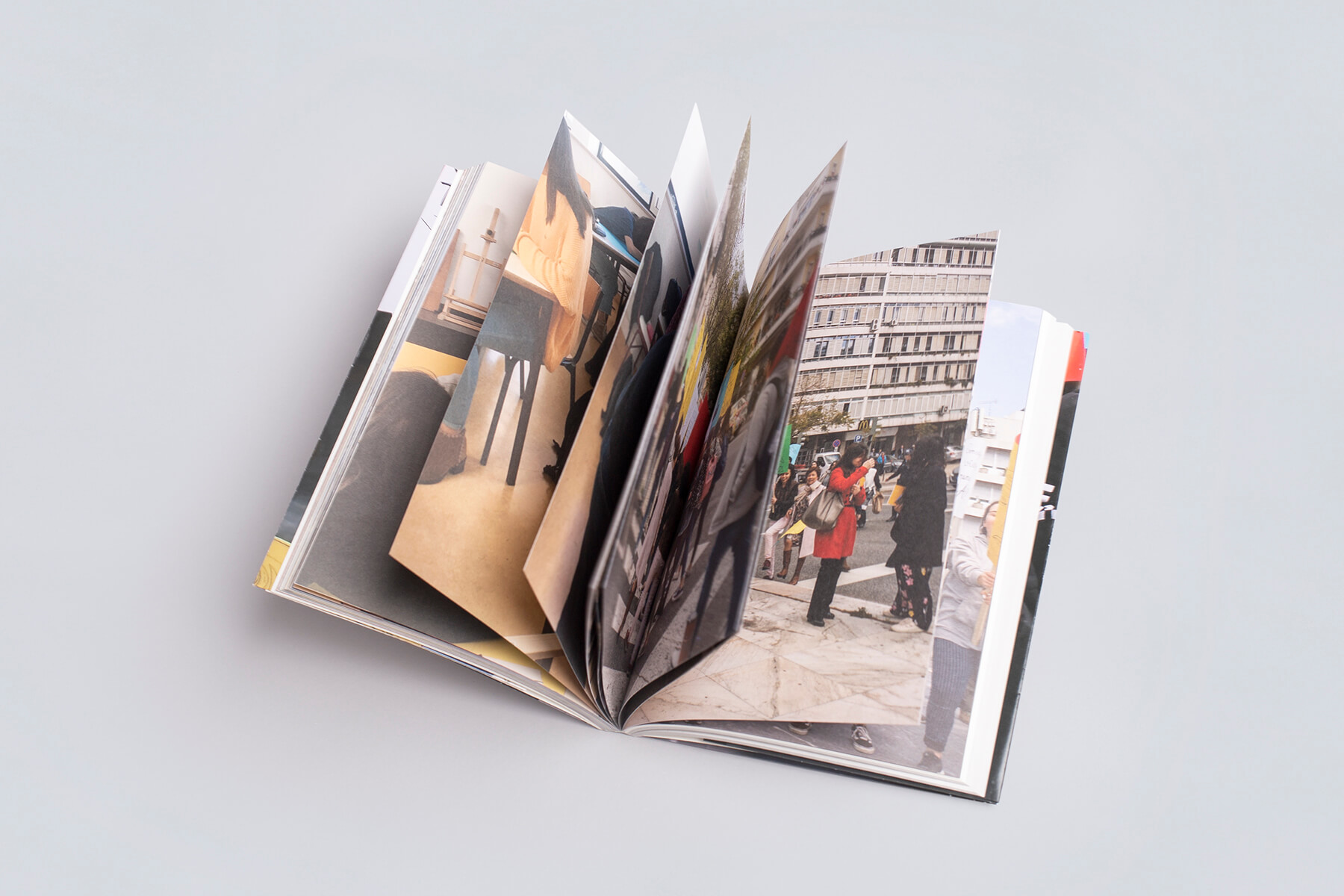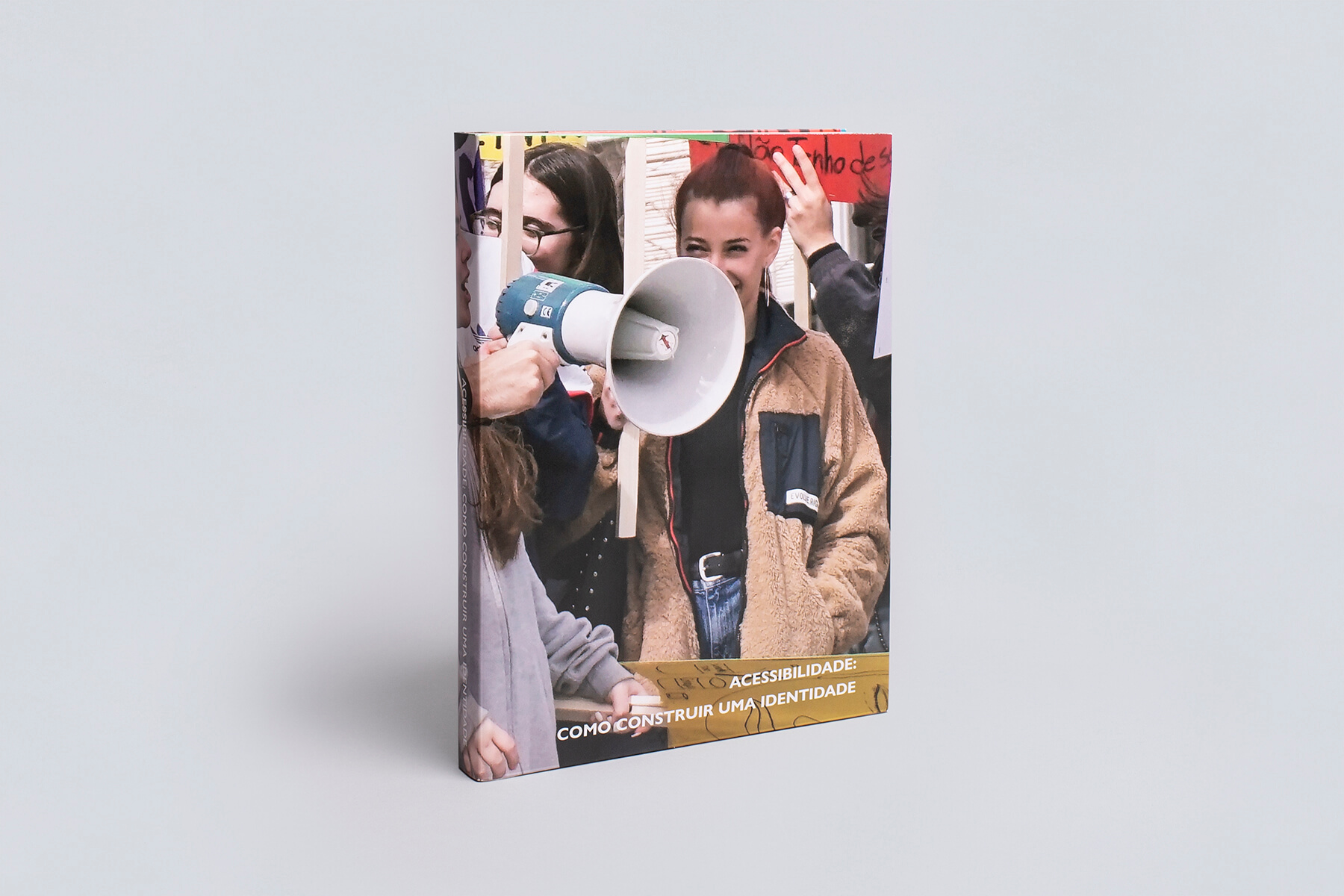This publication is one of the results of Accessibility: how to build an identity, which has been developed and oriented by Vasco Araújo at the invitation of Galerias Municipais as part of the DESCOLA programme. Together with a group of forty students from the Rainha Dona Leonor School, Vasco Araújo developed four sessions of exercises debating themes such as Citizenship, Borders, Freedom/Equality and Recognition. These sessions led to a performance/demonstration in April 2019 during which students from 10th and 11th grade took posters to the streets featuring phrases and words originating from their previous debates. The publication features texts by Maria Teresa Cruz, Mamadou Ba, Sara Antónia Matos and Pedro Faro as well as Tobi Maier.
“Aesthetic experience, and creative and artistic methodologies are thus fundamental to the constitution of knowledge, to the difference of each subjectivity, and to one’s participation in the community. Through art, this simultaneously epistemological and political question makes it possible to arrive at the sites of education and pedagogy, without either becoming a subsidiary of the other.”
-Sara Antónia Matos e Pedro Faro
“Araújo aims to contemplate on and address the individual’s position in society, the conditions in which s/he is speaking up, and the platforms that can be created to hear a voice within a multitude of voices. Or to amplify a voice as part of a collective. Only together can we create a voice that will have repercussions in the broader sociopolitical sphere, and that will garner visibility in an increasingly schizophrenic and accelerated media landscape.”
-Tobi Maier
“In the encounter with Vasco Araújo’s works, in the experience opened by the works themselves, we come to understand how the political value of art lies precisely in its power to frame and organise the sensorium, in the aesthetic sharing of visibilities and invisibilities, of speech and listening and of common space and time (cf. Rancière, 2000).”
-Maria Teresa Cruz
“In public discourse in Portugal, racism and its denial demarcate the site of difference in a society that continues to think of itself as culturally homogeneous. This is because it is structurally and historically anchored to its colonial heritage, from which it has yet to be released.”
-Mamadou Ba





